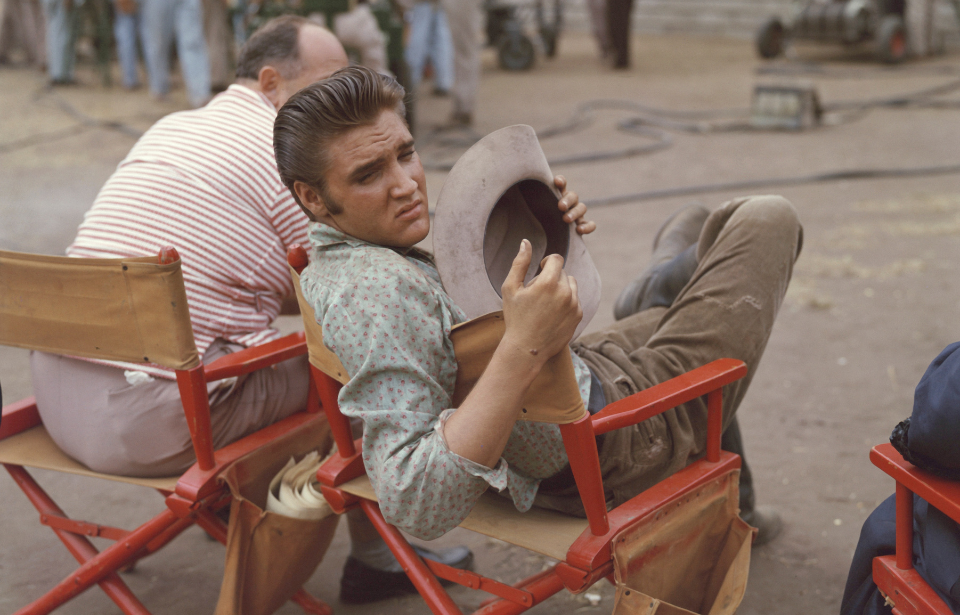On November 15, 1956, Elvis Presley, already a superstar in the music world, made his big screen debut in the film Love Me Tender. This event marked a significant moment in entertainment history, as it showcased Elvis’s transition from a chart-topping singer to a Hollywood star. The film was named after one of his hit singles, “Love Me Tender,” which had quickly become popular with fans.

Love Me Tender tells the story of the Reno brothers, set during the American Civil War. Elvis plays Clint Reno, the younger brother who faces challenges back home while his older brothers are off fighting. The film combined drama and romance, giving Elvis the opportunity to show his talent not only as a singer but also as an actor. Initially titled The Reno Brothers, the movie was renamed to take advantage of the success of his song, which had already sold over a million copies before the film’s release.
The premiere of Love Me Tender drew large crowds eager to see Elvis on screen. Fans loved his performance, but critics had mixed feelings. Some praised his charm and presence, while others felt he lacked experience in acting. Regardless of the reviews, the movie was a box-office hit, and it solidified Elvis’s status as a major figure in both music and film.
Elvis’s debut in Love Me Tender opened the door to a successful film career, leading him to star in 31 movies over the next decade. This blending of music and film not only showcased his versatility but also set the stage for future musicians to follow in his footsteps. The film remains a significant part of Elvis’s legacy, highlighting the impact he had on American entertainment.
More from us: Elvis Presley Hated This Food So Much That He Banned It From Graceland
Would you like to see more daily historical content from The Vintage News? What if we sent it directly to your inbox every day? Sign up here to receive our daily Today in History posts.
As we remember November 15, 1956, it’s clear that Elvis Presley’s debut in Love Me Tender was more than just the start of a film career; it was a moment that shaped pop culture in the 1950s and beyond, influencing generations of artists and fans alike.
